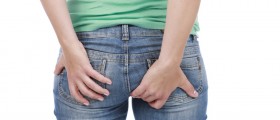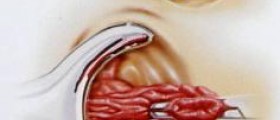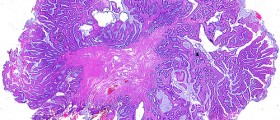
Hemorrhoids are vascular structures situated in the anal canal. Their primary role is to help with stool control. Under the certain conditions, these structures can become swollen and inflamed, and therefore pathological. This may happen for different reasons, usually from straining during bowel movements. Pregnant women often have problems with inflamed hemorrhoids, as their vascular structures suffer the increased pressure.
Types of hemorrhoids
There are two main types of hemorrhoids: ones located in the rectum, known as internal hemorrhoids, or those that develop under the skin and around the anus, known as external hemorrhoids. Internal hemorrhoids are not as painful as the external ones, as they usually manifest with painless rectal bleeding. However, this doesn’t mean that internal hemorrhoids aren’t a serious health concern. There is no pain with internal hemorrhoids only because the internal rectal area lacks pain receptors. Untreated internal hemorrhoids can progress to more severe forms of hemorrhoids such as prolapsed and strangulated hemorrhoids.
Symptoms of hemorrhoids
Inflammation of hemorrhoids is usually present with itching, rectal pain, and bleeding. In mild cases, symptoms will resolve within a couple of days with no special treatment. Patients usually detect problems with the hemorrhoids when they notice the bright red blood covering the stool, on the toilet paper or in the toilet bowl. Commonly, patients will feel painful swelling and lumps around their rectal opening.
These symptoms may sometimes indicate other serious diseases and patients should see their doctors, whenever they detect rectal bleeding. In rare cases, this may be the sign of serious diseases such as Chron’s disease, colorectal cancer and anal cancer.
Complications of hemorrhoids
Prolapsed hemorrhoids are one of the common complications of untreated hemorrhoids. This condition is characterized by hemorrhoids that are so distended that they are pushed outside the anus. Strangulated hemorrhoids are another common complication, which occurs when the anal sphincter muscle goes into spasm and traps a prolapsed hemorrhoid outside the anal opening. If this happens, the blood supply is cut off, and the hemorrhoid becomes strangulated.
Causes of hemorrhoids
Hemorrhoids develop when the veins around the anus stretch too much under a lot of pressure. Generally, increased pressure in the lower rectum causes swelling of the veins and their inflammation. This usually happens because of the straining during bowel movements, or sitting for long periods of time on the toilet. Obesity, chronic diarrhea and constipation are also recognized as causes of hemorrhoids. Hemorrhoids are also often during the pregnancy and in people who practice anal sexual intercourse.
















Your thoughts on this
Loading...